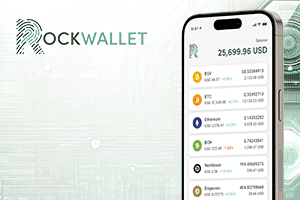
| Getting your Trinity Audio player ready... |
Digital asset custodian/wallet BitGo has walked away from its planned acquisition of rival Prime Trust after the latter was ordered to cease and desist its operations in the state of Nevada.
On Thursday, June 22, BitGo’s official Twitter account tweeted: “After considerable effort and work to find a path forward with Prime Trust, BitGo has made the hard decision to terminate its acquisition of Prime Trust. This decision was not made lightly and BitGo remains committed to our mission to deliver trust in digital assets.”
The announcement came just two weeks after BitGo Holdings announced that it had signed a non-binding letter of intent to acquire Prime Core Technologies, the parent company of the Nevada-based Prime Trust. Even as rumors swirled that Prime Trust needed to raise $25 million ASAP, BitGo CEO Mike Belshe claimed that he wouldn’t be doing the deal if Prime Trust’s problems were “insurmountable.”
On Thursday, Belshe told Fortune that Prime Trust “were not realistic about the state of their business two weeks ago.” While he avoided specifics, Belshe said Prime Trust “just don’t have the finances they need to complete the terms we had asked for in the term sheet.”
Shortly after BitGo’s announcement, Prime Trust “regretfully” informed its clients that it was halting deposits and withdrawals of both fiat and digital assets for custody “by order of the Nevada Financial Institution Division [NFID] received on Wednesday, June 21.”
Prime Trust urged clients to “take action immediately to stop sending client custody assets to Prime Trust, especially digital assets” and warned it “will suspend certain business expansion activities such as signing new customer contracts.”
Prime Trust claimed to be “actively engaging” with the NFID “to determine next steps to remediate any concerns and return to business as usual as soon as possible.”
Belshe told Fortune that the NFID “asked [Prime Trust] to freeze their assets because they need to go in and sort things out. That happens when something is wrong.” Belshe expressed concern for Prime Trust’s customers, saying, “It’s probably going to be a struggle for them.”
The -$12 million men
The Nevada C&D order says the NFID began a ‘safety and soundness examination’ of Prime Trust on November 7, four days before the flailing FTX digital asset exchange filed for bankruptcy protection. The order notes that this probe “remains open and ongoing” after establishing “the need to monitor the solvency of the trust company.”
As of March 31, 2023, Prime Trust had “a negative $12,071,508 stockholders’ equity position.” (Bear in mind that Prime Trust had raised $100 million in a funding round the previous June.) The order says Prime Trust’s financial condition “has considerably deteriorated to a critically deficient level” and “if it were to continue to operate it would be in an unviable or unsafe manner.”
As of June 21, Prime Trust was “unable to honor customer withdrawals due to a shortfall of customer funds caused by a significant liability on [Prime Trust’s] balance sheet owed to customers.” Prime Trust “has materially and willfully breached its fiduciary duties by failing to safeguard assets under its custody.”
It’s perhaps worth remembering that four days after the NFID opened its examination last November, Prime Trust issued a cryptic announcement that it was “increasing our capital contribution to certain liquidity providers to lessen the spread on BTC.” The announcement said this step was necessary because “we are seeing liquidity providers across the market pull back due to the uncertainty resulting from FTX.”
Fallout boys
The ripple effects of Prime Trust’s downfall were swift. Estonia-based exchange Coin Metro announced an “unexpected disruption in USD transactions” due to the aforementioned issues at its “partner for USD payments Prime Trust.” Coin Metro apologized for its inability to “process new USD transactions” and said it was “diligently working on adding alternative payment partners.”
Another Prime Trust partner, the Seattle-based Stably fiat on-ramp for Web3 and stablecoins, announced that it was “temporarily” pausing onboarding, deposits/withdrawals, and buying/selling, as well as minting/redemptions of its wrapped BTC/ETH coins on the Chia Network. Having relied on Prime Trust to be its “custodian, funds processor, convertible virtual currency exchanger and administrator,” Stably claims to be “diligently working on integrating new custodian partners.” No doubt.
Jack Mallers’ payments platform Strike—previously seen trying to obfuscate its use of the scandal-plagued Tether stablecoin in El Salvador—claimed earlier this month to have pulled assets custodied with Prime Trust and brought them in-house. But Strike customers were informed Thursday that the company was “temporarily disabling card and direct deposits.” Bank deposits/withdrawals “remain fully operational,” but Strike’s “transition to our own infrastructure” was causing “temporary interruptions in card and direct deposits.”
How’d we get here?
Prime Trust had been struggling since FTX went under, the fallout from which may have contributed to the ouster of Prime Trust’s then-CEO Tom Pageler. In April 2022, Prime Trust acknowledged that it had served as a pass-through for some $14 million in political donations by FTX boss Sam Bankman-Fried and his former head of engineering Nishad Singh.
This January, Texas fined Prime Trust for operating without a money transmission license, bringing the total number of states taking action against Prime Trust to four (following Connecticut, Idaho, and Pennsylvania). With Nevada now on Prime Trust’s case, that’s one for the thumb.
In February, Prime Trust laid off a third of its staff, despite that $100 million raise just eight months earlier. This month, Prime Trust subsidiary Banq filed for bankruptcy protection, claiming to have had millions of dollars looted by former CEO Scott Purcell, who founded Prime Trust in 2016 and until March 2021 acted as that company’s CEO.
TUSD RIP(cord)
TrueUSD, the Justin Sun-linked issuer of the TUSD stablecoin, bravely tweeted that it was “not affected” by Prime Trust’s woes. Having paused new mints of TUSD via Prime Trust earlier this month, TrueUSD now claimed that it had “no exposure” to the company and maintained “multiple USD rails for minting and redemption.”
While that’s the public line, TrueUSD is reportedly sending users emails warning them that they “will be unable to mint and redeem TUSD as well as any of our TrueCoin’s including TAUD, TCAD and TGBP while Prime Trust operations are suspended.”
TUSD’s market cap shot up by one-half last week as someone allegedly minted another $1 billion of the tokens on the Binance exchange. The minting occurred just days after TrueUSD’s murky owner Techteryx opened a new Swiss bank account that the stablecoin’s auditor warned lacked the consumer protection guardrails enshrined in the other accounts allegedly holding TUSD’s fiscal reserves.
This auditor has several automated ‘ripcords’ triggered when things go awry, and Thursday saw the ‘Management’ ripcord pulled for the second time this week. ‘Management’ occurs when the folks that run TrueUSD have “un-acknowledged representations, assertions, or did not acknowledge the terms of the engagement” with their auditors.
TrueUSD blamed Thursday’s ripcord on “a delay in one of the new banking partner’s API interface, which prevented the auditor from reading the bank’s latest escrow balance.” While TrueUSD insisted the problem has since been fixed, there’s been no update on Techteryx’s alleged “deliberations” with the Swiss bank regarding a fix for that new account’s utter lack of consumer protections.
Where there’s crime, there’s Binance
Prime Trust also served as custodian for Binance.US, the publicly-independent-secretly-servile offshoot of Binance.com founder Changpeng ‘CZ’ Zhao. Binance.US had the misfortune to move millions in customer assets to Prime Trust this spring after the failures of crypto-friendly U.S. banks and the reluctance of other banks to take Binance’s business.
In February, Reuters reported that, in a three-month period in early 2021, Prime Trust transferred $650 million into Binance.US bank accounts at the now-defunct crypto-friendly Silvergate Bank. The Prime Trust transfers were part of an in-out shell game CZ was playing to move money (ostensibly under the control of Binance.US) out of American regulatory oversight as quickly as possible.
Whatever customer cash Binance.US may have transferred to Prime Trust could now be gone forever. God help CZ if it turns out that he had those funds spirited out of the country before Prime Trust’s lights went dark.
Prime Trust served as custodian for customers of Abra, the digital asset custody/lending business that was hit with a C&D order this month after Texas regulators learned it was “insolvent or nearly insolvent” since March, Prime Trust custodied assets held by Abra Earn, Abra Trade, and Abra Boost customers. Abra was also found to have been “secretly transferring assets” worth over $118.5 million to Binance.com without telling its U.S. customers.
Daddy’s home
Nevada’s action against Prime Trust pokes a major hole in the ‘crypto bro’ mantra that Gary Gensler, chairman of the U.S. Securities and Exchange Commission (SEC), is somehow on a lonely Quixotic crusade against the digital asset sector.
It seems more and more like regulators and legislators at all levels of U.S. government—and increasingly, around the globe—have grown weary of the financial pain these scammers inflict on those who can least afford the losses. With the fallout from Prime Trust’s demise likely to continue spreading in the coming days/weeks, expect even more of this ‘persecution’ from the adults in the room.
Thursday’s actions also offer an explanation for why the Crypto Crime Cartel chose to pump the fiat value of major tokens so hard this week ahead of the bad news. It’s what they do, and somehow, people still fall for it. Time to see these crooks for who they really are.
Watch: Rise of digital currencies in banking discussed, Dr. Vogel

 09-21-2024
09-21-2024




